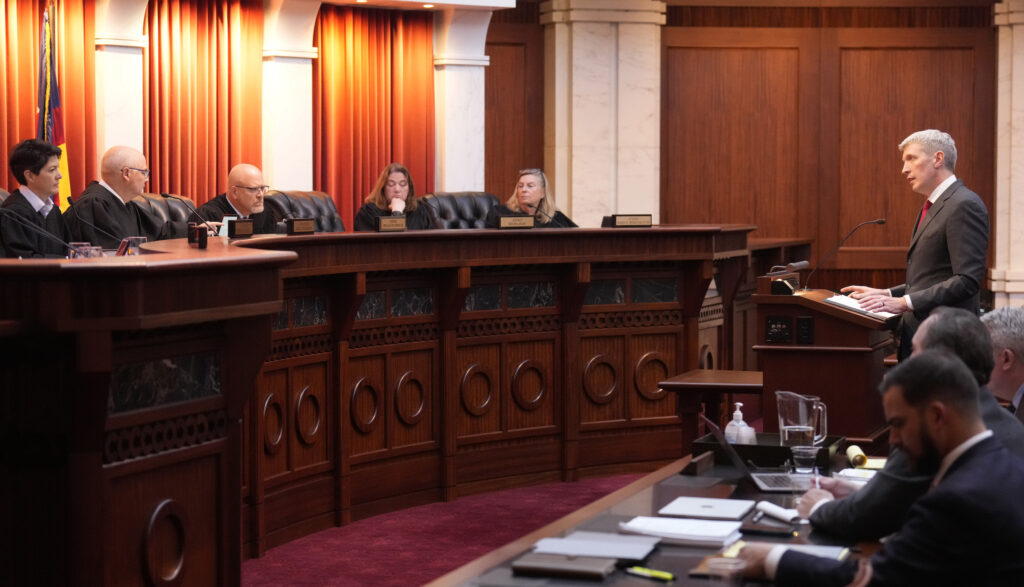We clearly are going to hear a number of interpretations about Section 3 of the 14th Amendment to the Constitution of the United States in the coming days and weeks. Setting aside for the moment the serious question about whether the best way to address Donald Trump’s quest for a return to the White House should involve keeping his name off of the ballot, it seems worthwhile to carefully understand what is in the 14th Amendment.
While fascinated by this development in our presidential deliberations as we enter 2024, I should say at the outset that I am not an attorney; so, proceed with caution!
The intent of the provision seems very clear. Engaging in insurrection or rebellion, or giving aid or comfort to our enemies, should prevent service in an official federal or state office.
Here’s a closer examination of the actual language is Section 3 of the 14th Amendment with some personal annotations:
No person…
The section begins with a rather absolute tone.
shall be a Senator or Representative in Congress, or elector of President and Vice-President,
Interesting that certain officials were singled out. The Trump lawyers suggest that because THE PRESIDENT was not specifically mentioned that this does not apply to him. However, in Colorado the finding was that senators and representative are “members” of legislative bodies as distinct from holding a specific office and this language was used because of this distinction. And, there is reason to believe that this interpretation is correct.
or hold any office, civil or military, under the United States, or under any State,
Here they cover anyone holding a public office, civil or military, at the Federal or State level. I’d say that the terms “Office of the President of the United States,” and “Commander in Chief” make clear that the Amendment applies to a President.
who, having previously taken an oath, as a member of Congress, or as an officer of the United States, or as a member of any State legislature, or as an executive or judicial officer of any State, to support the Constitution of the United States,
Here again, the Trump team tried to argue that the former President was not a “officer of the United States.” The Court rejected that notion. And, as for taking an oath, I think that what happened after the Chief Justice of the Supreme Court said to the President-Elect on the steps of the Capitol, “…repeat after me” makes the case pretty clearly.
shall have engaged in insurrection or rebellion against the same, or given aid or comfort to the enemies thereof.
This was where there were those in Colorado who suggested without due process, there could be no presumption of guilt for Donald Trump. However, the majority of the Supreme Court in Colorado found the evidence gathered during the District Court trial from the U.S. House of Representative’s Committee investigating the January 6th actions at the US Capitol, along with other testimony and material, to have provided sufficient reason to conclude that there had been engagement in insurrection and rebellion by the former President.
While it is reasonable to question whether only reviewing investigative material when no prosecution has been completed with a guilty verdict reached is sufficient to fully determine that an individual committed the aggrecious actions suggested, the specific requirement of a conviction was not inserted into the Amendment. Instead, there is another safeguard offered as the final paragraph.
But Congress may by a vote of two-thirds of each House, remove such disability.
The remedy for an unwise application of Section 3 of the 14th Amendment is found here, where with a vote of Congress, restrictions on any individual can be lifted.
So, the Supreme Court of Colorado, having determined by its interpretation of the 14th Amendment and the observable and investigated actions of Donald Trump in a lower court, that the former President is ineligible to hold a public office, therefore found he is not eligible to be listed on the primary ballot in Colorado.
I think they have made a strong case in Colorado; and while I would like to see the question of who is fit to serve as our next President settled in the voting booth, you just cannot choose which U.S. Constitutional Amendments you wish to abide by and which you would like to ignore.
Craig Fuller served four years in the White House as assistant to President Reagan for Cabinet Affairs, followed by four years as chief of staff to Vice President George H.W. Bush. Having been engaged in five presidential campaigns and run public affairs firms and associations in Washington, D.C., he now resides on the Eastern Shore.


Write a Letter to the Editor on this Article
We encourage readers to offer their point of view on this article by submitting the following form. Editing is sometimes necessary and is done at the discretion of the editorial staff.